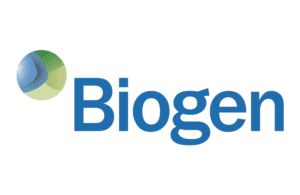 Aducanumab from Biogen (NSDQ:BIIB) seemed to be on the verge of becoming the first new Alzheimer’s drug to hit the market in almost two decades. Now, its potential fate is murkier given skepticisms voiced during an FDA advisory committee meeting today.
Aducanumab from Biogen (NSDQ:BIIB) seemed to be on the verge of becoming the first new Alzheimer’s drug to hit the market in almost two decades. Now, its potential fate is murkier given skepticisms voiced during an FDA advisory committee meeting today.
BIIB shares skidded 28% in afternoon trading on Nov. 9.
Eight of the experts in the committee disagreed that there was strong evidence in a Phase 3 trial to suggest that the drug was an effective Alzheimer’s treatment. One panel member voted for the drug while two were undecided when asked if the Phase 3 study 302 (also known as the Emerge trial) supported the effectiveness of the drug. For this question, panel members were asked to disregard results from a negative Phase 3 trial (study 301, also known as the Engage study).
“There is a suggestion of a [positive] affect,” said Dr. Aaron Kesselheim, a Harvard University medical professor and member of the FDA Peripheral and Central Nervous System Advisory Committee. “But there are enough red flags” to warrant skepticism, Kesselheim noted. He referenced changes to the study protocol and concerns about unblinding. “This was not a full study,” he said, referring to the 302 trial. “It doesn’t add up to be strong evidence.”
Five panelists, however, agreed that the drug had strong evidence of a pharmacodynamic effect on Alzheimer’s disease pathophysiology while six were uncertain.
Some five million people in the U.S. have the disease, according to the Alzheimer’s Association, which estimates the number could rise to 14 million by 2050. And treatment options for the disease remain limited.
The market for Alzheimer’s drugs could reach an estimated $5.7 billion by 2024, according to Zion Market Research.
Signs had indicated that FDA was leaning toward approving the drug, which targets amyloid-beta deposits associated with the disease. Several drug candidates targeting amyloid beta have failed to generate promising Phase 3 trial data over the past decade, including solanezumab from Eli Lilly (NYSE: LLY) and gantenerumab from Roche (OTCMKTS: RHHBY).
FDA recently indicated that Biogen had provided “substantial evidence of effectiveness to support approval” in the 302 study.
Biogen’s stock had gained in value by almost one-third, rising from $247.66 on Nov. 3 to $328.90 yesterday. BIIB trading was halted today during the FDA advisory committee meeting.
Some experts have previously voiced skepticism that aducanumab, developed by Biogen and its Tokyo-based partner Eisai (OTCMKTS:ESALY), can slow cognitive decline.
“I desperately wish for a genuine therapy that substantially slows or reverses the disease,” wrote David Knopman, a neurologist, in comments to FDA. “Yet the evidence that aducanumab is that therapy and has any benefits in persons with [Alzheimer’s disease] is terribly weak.”
Clinical trials of the drug have yielded mixed data. Biogen stopped the two Phase 3 studies in March 2019 owing to a lack of convincing data. But the company later decided that one of those studies suggested that patients who received a high dose of the drug benefited.
A panel of three former FDA employees gathered by investment bank UBS was, however, unanimously optimistic about aducanumab. “[T]wo experts stated a 70% probability based on the briefing documents, increasing to 90% if the panel votes in favor of approval,” according to an analyst briefing note.
If approved, the price tag for the drug would be steep, costing an estimated $50,000 annually.
Approval for aducanumab could ultimately hinge on how FDA weighs clinical versus statistical data related to the drug. The former supports approval. A comment in the appendix of a document for the Peripheral and Central Nervous System Drugs Advisory Committee Meeting summarized the opposing viewpoint: “In summary, the totality of the data does not seem to support the efficacy of the high dose. There is only one positive study at best and a second study which directly conflicts with the positive study.”
That opinion differed from that of the advisory committee at large. And the negative comment was buried near the end of the document and “seems superseded by FDA’s prior [positive] commentary,” as UBS analyst Colin Bristow.
This article was originally published on Nov. 6, and was updated on Nov. 9.
Filed Under: clinical trials, Drug Discovery, Drug Discovery and Development



